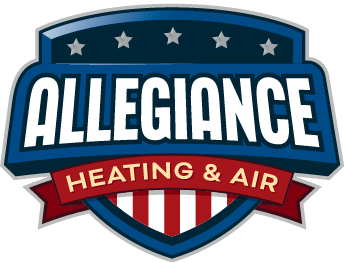Common HVAC Problems Homeowners Face
Understanding the signs of a struggling HVAC system can help you address problems before they escalate. In Crestwood homes, we frequently encounter issues related to both heating and cooling, often exacerbated by the specific climate conditions.
Heating System Issues (Furnaces, Heat Pumps):
- No Heat or Insufficient Heating: This is a critical issue during colder months. It could be due to a faulty thermostat, clogged filters, ignition problems in a furnace, or issues with the heat pump’s defrost cycle or refrigerant levels.
- Strange Noises: Clanking, grinding, squealing, or rattling sounds often indicate a mechanical problem, such as a loose belt, motor bearing issue, or a problem with the fan.
- Short Cycling: When your furnace or Heat Pumps turns on and off frequently without completing a full heating cycle, it can be caused by a clogged filter, an improperly sized system, or issues with the heat exchanger or limit switch.
- Pilot Light Problems (Furnaces): An extinguished or flickering pilot light can prevent a furnace from operating, often due to a draft, a dirty pilot opening, or a thermocouple issue.
- Blower Fan Issues: If the fan isn’t distributing air properly, or runs constantly, it indicates a problem with the blower motor, capacitor, or control board.
Cooling System Issues (Air Conditioners, Heat Pumps, Ductless Systems):
- Blowing Warm Air: This is a clear sign the Air Conditioning system isn’t cooling effectively. Causes range from low refrigerant levels (possibly due to a leak), a faulty compressor, dirty condenser coils, or electrical issues.
- System Not Turning On: Could be a tripped breaker, a faulty thermostat, a capacitor issue, or problems with the contactor or control board.
- Poor Airflow: Weak airflow from vents can indicate blocked ducts, a failing blower motor, or issues with the evaporator coil.
- Refrigerant Leaks: A common and serious problem that reduces cooling capacity and can damage the compressor. Signs include hissing sounds and ice buildup on coils.
- Strange Odors: Musty smells may point to mold or mildew in the ducts or coil, while a burning smell could indicate an electrical issue.
- Frozen Evaporator Coil: Ice buildup on the indoor coil is usually caused by restricted airflow (dirty filter, blocked vent) or low refrigerant.
Indoor Air Quality Issues Related to HVAC:
- Excess Dust or Poor Filtration: A clogged filter or issues with the Whole House Air Filtration system can lead to poor air quality.
- Humidity Problems: HVAC system problems can exacerbate issues with excessive dryness or humidity, sometimes requiring repairs to existing Whole Home Humidifiers or Whole House Dehumidification systems or the primary system itself.
- Uneven Temperatures: Hot and cold spots can point to ductwork issues, blower problems, or system calibration needs.
Experiencing any of these symptoms means it’s time to call for professional HVAC repair. Ignoring these signs can lead to more extensive damage and costly repairs down the line.
Our Expert Diagnostic and Repair Process
When you contact Allegiance Heating & Air, LLC for HVAC repair in Crestwood, you can expect a professional and thorough approach designed to accurately identify and efficiently resolve the problem. Our process is designed for transparency and effectiveness:
- Initial Contact & Scheduling: You reach out to us reporting the issue. Our team gathers necessary information about your system and the problem you’re experiencing to schedule a visit at your earliest convenience. We understand emergencies happen, and strive to provide timely service.
- Thorough System Diagnosis: Upon arrival, our certified technician will perform a detailed inspection of your HVAC system. This involves checking electrical components, refrigerant levels (for cooling/heat pumps), airflow, thermostat function, safety controls, and other critical parts based on the reported issue. They use specialized tools to pinpoint the root cause of the malfunction.
- Clear Explanation and Options: Once the diagnosis is complete, the technician will clearly explain the problem, the necessary repairs, and any options available to you. They will answer your questions and provide an upfront estimate for the work required. We believe in empowering you with information to make the best decision for your home and budget.
- Professional Repair Execution: With your approval, the technician will proceed with the repair. They arrive equipped with common parts for standard repairs, aiming to fix the issue on the first visit whenever possible. Repairs are performed meticulously, using quality parts and adhering to industry best practices for safety and effectiveness. This includes Furnace Repair, AC Repair, Heat Pump Repair, or repairs for other specific components like thermostats or humidifiers.
- Post-Repair System Check & Cleanup: After completing the repair, the technician will test the system thoroughly to ensure it is functioning correctly and efficiently. They will verify that the initial problem is resolved and that the system is operating safely. Before leaving, they will clean up the work area, leaving your home just as they found it.
Expected Repair Timelines
While every repair is unique, we can provide general timelines to set expectations:
- Minor Repairs (e.g., replacing a capacitor, fixing a thermostat wire, cleaning a clogged drain line): These can often be completed within 1-2 hours during a standard service call.
- Moderate Repairs (e.g., replacing a blower motor, contactor, or a control board): These might take anywhere from 2-4 hours, depending on the system and its accessibility.
- Major Repairs (e.g., compressor replacement, coil replacement, heat exchanger repair/replacement): These are more complex and could take half a day or longer. In some cases, depending on part availability, a return visit might be necessary.
- Emergency Repairs: While the repair duration itself varies as above, our response time for urgent situations is prioritized to restore essential heating or cooling as quickly as possible, often within the same day.
We always strive to provide accurate time estimates during the diagnostic phase once the problem is identified.
The Benefits of Professional HVAC Repair
Attempting complex HVAC repairs yourself can be dangerous and may cause further damage. Choosing professional repair services from a trusted company like Allegiance Heating & Air, LLC offers significant advantages:
- Safety: HVAC systems involve electrical components, refrigerants, and combustion (in furnaces). Professionals have the training and tools to work safely, mitigating risks like electric shock, fire, or carbon monoxide leaks.
- Accurate Diagnosis: Experienced technicians can quickly and accurately identify the root cause of a problem, preventing unnecessary repairs and ensuring the fix is effective and lasting.
- Efficiency & Performance: Proper repairs restore your system’s efficiency, leading to lower energy bills and consistent comfort. An improperly repaired system can consume excessive power.
- Extended System Lifespan: Addressing issues promptly and correctly helps prevent premature wear and tear on components, potentially extending the overall life of your Heating and Air Conditioning units.
- Warranty Protection: Many HVAC system and part warranties require that repairs be performed by a licensed professional to remain valid.
- Access to Quality Parts: Professionals use approved, high-quality replacement parts that are designed to work correctly with your specific system model.
- Prevention of Further Damage: What seems like a minor issue can quickly cascade into more serious problems if not diagnosed and repaired correctly. Professionals identify and fix issues before they cause secondary damage.
- Improved Indoor Air Quality: Sometimes, HVAC problems directly impact air quality. Repairs can involve addressing issues like mold growth on coils or problems with filtration, contributing to healthier indoor air.
Repair or Replace? Making the Right Decision
A common question homeowners face is whether to repair an ailing system or invest in a new one. There’s no single answer, but several factors can guide your decision:
- System Age: The average lifespan of a furnace is about 15-20 years, while air conditioners and heat pumps typically last 10-15 years. If your system is approaching or beyond its expected lifespan and needs a significant repair, replacement might be a more cost-effective long-term solution.
- Cost of Repair vs. Replacement: If the cost of a major repair is a significant percentage (often cited as 30-50%) of the cost of a new system, replacement may be the better investment.
- Frequency of Breakdowns: A system that requires frequent, costly repairs is likely nearing the end of its useful life. The cumulative cost and inconvenience of repeated breakdowns can outweigh the cost of a new, reliable system.
- Energy Efficiency: Older systems are significantly less energy-efficient than modern units. A new high-efficiency system can lead to substantial savings on utility bills over time, offsetting the initial investment.
- Availability of Parts: For very old systems, finding replacement parts can become difficult and expensive.
Our technicians can provide an honest assessment of your system’s condition, explain the implications of repair versus replacement, and help you weigh the factors relevant to your specific situation in Crestwood. We can provide details on the potential long-term savings and comfort improvements offered by new, efficient systems, and discuss Financing options if replacement is the chosen path.




